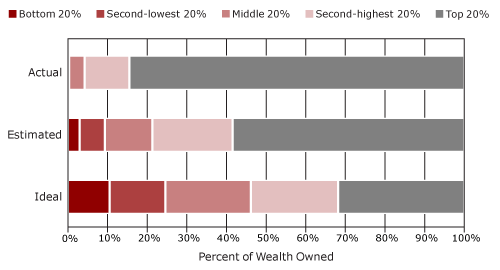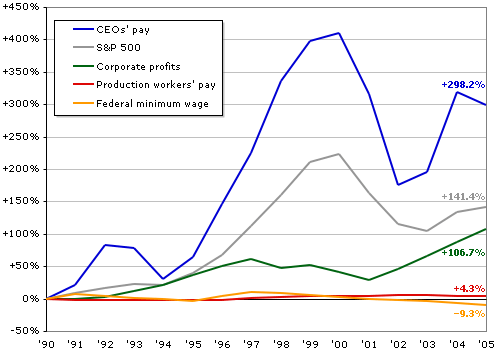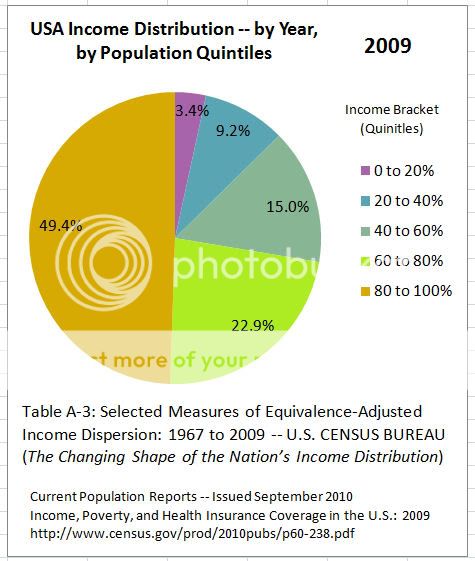... and facts are what they are. The point, Mike and Jeff, isn't so much how much
wealth is concentrated, but how well the society functions with that concentration. In other words, what things serve to make this more platable to the majority, and to make for a less polarized economy?
One, is the
income equaltiy - the less of a gradient here, the less of a difference in daily life, and the more economic mobility in income terms is possible
Two, is the
services equality - the less of an advantage there is to very high incomes in getting health care, education, a decent retirement, the less impact of high wealth and/or income. And yes, over time as societies and technologies develop, more items fall into the services equality bucket. These services also tend to reinforce economic mobility.
And economic mobility here is a good thing - for this ensures the best qualified and able can rise to more impactful positions, vs. in a system where ability can be more easily swamped out by conditions of birth.
Third, there's a
social equality style that doesn't look at wealth or fame as the primary differentiator. In other words, for ego driven strivers, making a ton of money and being an a-hole about it isn't the only way to fill that void they feel...

Fourth, and this is currently uppermost due to the bad economy now, and for the past 10 or more yeas for the 'common' wage earner:
Pie Growth equality. That is, as the GDP grows, all deciles get some of the benefit... the benefits do not accrue to those at the top in an overly abundant way. And when the pie shrinks, the bottom loses less... In general, as the pie shrinks, these resentments and grabs come out.
When I say 'equality' above I do not mean a rigid 'everyone gets the same' or 'everyone within 20%' type of equality... there will always be market and tradition based differences... it is relative equality, a concept that will change over time and across societies, of what feels 'fair'. With the Scandinavian countries and Japan for example, the societal norm of 'fair' tends to limit the upward move of the highest salaries... whereas in the US the competing ideas of 'fairness' are constantly moving, depending on which spokesmen are better at it and better funded. (I happen to think the ideas of 'fair' that came in with the first Roosevelt and then became institutionalized with the second were one of the things that permitted the long golden age from WW2 to the 1970s.)


 Similar Threads
Similar Threads 

























